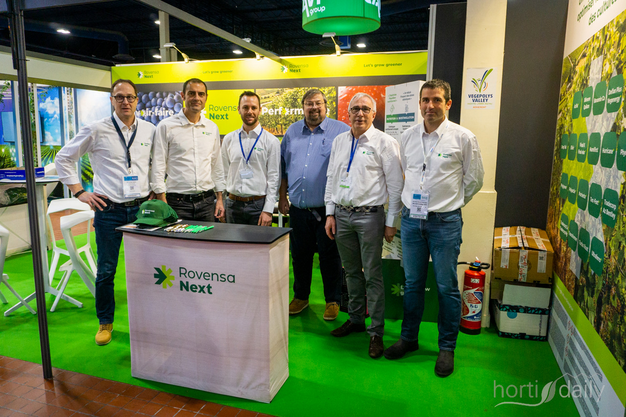The launch of Horizon Europe project Sagropia marks the beginning of a five-year collaborative approach to research and innovation in sustainable crop protection. With a budget of €6 million, Sagropia aims to reduce chemical pesticide use by 50% in potato and sugar beet cultivation. The consortium consists of 10 partners, among which Rovensa Next.
Focusing on biocontrol methods for combatting plant pests and diseases, as such, it intends to align with the objectives for sustainable farming systems and inclusive, healthy food systems. The project strives for climate-neutral, resilient farming, providing safe and sustainable solutions while minimizing ecosystem pressure and promoting biodiversity. In addition, it intends to contribute to climate mitigation and the Sustainable Developmental Goals.
The EU Farm to Fork strategy aims to reduce reliance on chemical pesticides due to environmental and health concerns. EU Institutions seek to replace identified CfS in EC Regulation No. 1107/2009 while maintaining high agricultural yields amidst climate change and pest risks. The agri-food industry is exploring alternative approaches and seeks to replace the identified CfS. The industry also attempts to address pesticide-related issues.

The Sagropia consortium connects research institutes and agroindustry companies from 8 countries (7 EU and the USA). The consortium is led by the RTDS Association, an EU-funding consultancy. The objective of this collaboration is to develop and implement innovative and comprehensive Integrated Pest Management (IPM) strategies. These IPM strategies will be tested in participatory field trials with growers and will be assessed for their environmental, social, and economic sustainability.
Sara Monteiro, Head of Global R&D Biocontrol and Adjuvants, says: "Rovensa Next biosolutions will be evaluated and endorsed by a consortium of experts in different areas, from science to IPM to sustainability, and together, will provide integrated strategies to solve some of the most challenging and demanding pest and diseases in two key crops for Europe as sugar beet and potato."
Sagropia's scientific coordinator, Dr. Günter Brader (Senior Scientist/Bioresources from the AIT Austrian Institute of Technology), says: "Specifically, we aim to replace several so-called 'candidates for substitutio' (CfS) active substances, which are supposed to phase out because of their toxicological profiles but, due to lack of alternatives, are still commonly applied for crop protection. To replace them, we will test and bring forward promising candidates out of thirteen innovative, biological, and low-risk pesticides. Combined with IPM, this shall maintain high crop quality and secure yields in EU agriculture while limiting harmful effects on the environment and human health."
For more information:
Rovensa Next
www.rovensanext.com
info@rovensanext.com
